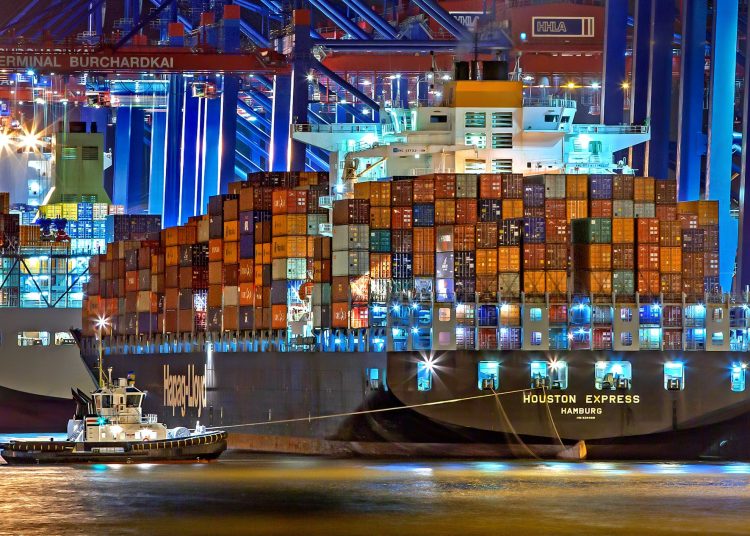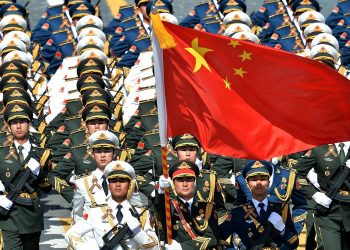A few recent headlines have passed without much attention. The first, our national debt has reached $30 trillion, and the second the trade deficit for 2021 hit a record $859.1 billion. Both received scarce attention because of the American people becoming numb to a massive national debt and trade deficit. Policymakers have ignored both issues. This is unfortunate because both the national debt and the trade deficit are serious issues that will have repercussions on the national economy. It most be pointed out that both the national debt and the trade deficit share a similarity in that both political parties are responsible.
The trade deficit receives less attention than the national debt. One reason for this is that it is complicated and most policymakers on both sides of the philosophical divide regard it as meaningless. A trade deficit is simply defined as imports into the United States far exceed what we export as a nation. The $859 billion trade deficit is a 27 percent increase over the previous year.
Another factor for the 27 percent increase in the trade deficit was consumers purchasing more imported products combined with higher prices as a result of inflation. Some of the leading imported goods included computers, cell phones, toys, furniture, autos, and medical supplies.
The trade deficit with China was $355 billion which marked a decade of the deficit hitting over $300 billion. The United States also ran a considerable trade deficit with the European Union among other nations.
Since 2001 the nation “has rung up over $12 trillion dollars in accumulated global deficits.” China’s exports to the United States have risen 31 percent since 2018. It is estimated that 3.7 million American jobs alone were lost to China between 2001 and 2018. This does not include manufacturing that was lost to other countries.
“Is not the case now conclusive that we made a historic mistake when we outsourced our economic independence to rely for vital necessities upon nations that have never had America’s best interests at heart,” asked columnist Patrick J. Buchanan?
The question must be asked whether the United States has outsourced too much and become too dependent on countries such as China? The COVID-19 health emergency has demonstrated that globalization has not only hollowed out our manufacturing base, but dangerously made us become dependent upon other nations for necessities. This was a result from numerous so-called free trade agreements as well as admitting China into the World Trade Organization. The consequence resulted in the loss of manufacturing jobs, which decimated the middle class.
Ambassador Robert Lighthizer, who served as President Trump’s United States Trade Representative (USTR), argues that “trade accords during this time, such as the North American Free Trade Agreement, zeroed out tariffs on imports from low-wage countries, worsening manufacturing job losses.” This impacted communities across the nation, especially in the Midwest. Ambassador Lighthizer noted that the United States lost 5 million manufacturing jobs.
“That, in turn, devastated towns and contributed to the breakdown of families, an opioid epidemic and despair,” wrote Ambassador Lighthizer. The “blue-collar” workers became the “forgotten men” and often they were told by the political elite that they should either abandon their communities and relocate or learn another skill such as computer programming. This “creative destruction” had consequences. Consumers were able to get cheaper products, but the loss of manufacturing jobs led to lower wages, greater dependence on social welfare programs, and the economic decline of many communities.
Columnist Terry Jeffery has examined data from the Bureau of Labor Statistics and found that in January over 22 million people were employed by government, while only over 12 million were employed in manufacturing. “Government employees now outnumber manufacturing employees by 76.3 percent,” noted Jeffery.
The United States has become dangerously dependent on foreign nations, even potentially hostile nations such as China, for essential goods. This even includes materials related to our national security and defense. Currently, a shortage of semiconductors exists. “Why are semiconductors so important? Because computer chips are the “brains” of not just computers, cars, and medical devices, but also the weapons systems that support America’s military. Being so dependent on imported computer chips leaves America’s national security vulnerable to the whims of the global market,” wrote Michael Stumo, CEO of the Coalition for a Prosperous America.
“What’s worrying is the degree to which China dominates the global supply of these crucial resources. For example, China controls 70% of the world’s lithium supplies, 80% of rare earth metals, and roughly 70% of the world’s graphite. These materials are irreplaceable for producing everything from electric vehicle batteries to solar panels and semiconductors,” argued Stumo.
Many economists and policymakers will argue that globalization is a net positive. The consumer benefits with cheap goods and businesses can earn more profit because they can save money by paying lower wages and fewer regulations in foreign countries. However, the result is not only a loss in manufacturing jobs and greater dependency, but lower wages and more people depending upon social welfare programs to survive.
“We must make every effort to restore a vibrant manufacturing sector in this country that can employ working men at living wages—wages that can feed a family and support a community. And we can start by requiring that at least half of all goods and supplies critical for our national security be made in the United States,” stated Senator Josh Hawley.
Whether it is pharmaceuticals, medical supplies, or other necessities the United States has become overdependent upon foreign nations. This has ramifications for both our economy and our national security. Our steel industry was close to being decimated before President Trump led with tariffs to protect this vital industry. Associated with foreign dependence is the need for further mining of precious metals that are driving technology. Should we rely on China for the natural resources that are needed to advance both our national defense and our domestic economy?
Our Founding Fathers understood the danger of relying on a foreign power for necessities. Alexander Hamilton, who served as a secretary and Aid-de-Camp to General George Washington, led a charge at the siege of Yorktown, which resulted in the British defeat in the American Revolutionary War. Hamilton would later become Secretary of the Treasury in President George Washington’s administration and he is credited to be the “father of American capitalism.” During the Revolutionary War, Hamilton saw firsthand the hardships that the Continental Army endured. A significant hardship was a lack of supplies and dependence upon France for resources. In 1791, Hamilton issued his Report on Manufacturers and a prime argument was the importance of national self-sufficiency. As Hamilton argued:
Not only the wealth; but the independence and security of a Country, appear to be materially connected with the prosperity of manufactures. Every nation, with a view to those great objects, ought to endeavor to possess within itself all the essentials of national supply.
In his first message to Congress, President George Washington offered a similar argument when he stated the nation should “promote such manufactories as tend to render them independent of others for essential, particularly military, supplies.”
As a nation how have we drifted so far from the wise council of Washington and Hamilton? The answer is globalization and consensus over the past several decades from both political parties to enter into so-called free trade agreements. Both Republicans and Democrats have embraced and worshiped at the alter of the golden calf of free-markets and free trade. They also rebuke critics as isolationists and protectionists.
The policy of tariffs (protectionism) is rooted in our history and economic nationalism, or patriotism does not mean opposition to trade. As Patrick J. Buchanan explains:
Protectionism is the structuring of trade policy to protect the national sovereignty, ensure economic self-reliance, and “prosper America first.” It was the policy of the Republican Party from Abraham Lincoln to Calvin Coolidge. America began that era in 1860 with one half of Britain’s production and ended it producing more than all of Europe put together. Is this a record to be ashamed of?
“Conservative statesman from Alexander Hamilton to Ronald Reagan sometimes supported protectionism and at other times they leaned toward lowering barriers. But they always understood that trade policy was merely a tool for building a strong and independent country with a prosperous middle class,” wrote Ambassador Lighthizer.
Senator Hawley is also correct that we need to rebalance trade and bring back manufacturing to the United States. Manufacturing provides better paying wages and strengthens communities. President Donald Trump was the first to start to rebalance our trade policy and encourage the growth of manufacturing.
The United States has become too dependent on foreign nations for necessities. Already in 2022 the trade deficit continues to increase. It would be wise to ignore the liberal globalists in both political parties and learn from the conservative nationalists and put the interests of the American people first. Record trade deficits and national debt both present serious threats to our economy and national security.
















